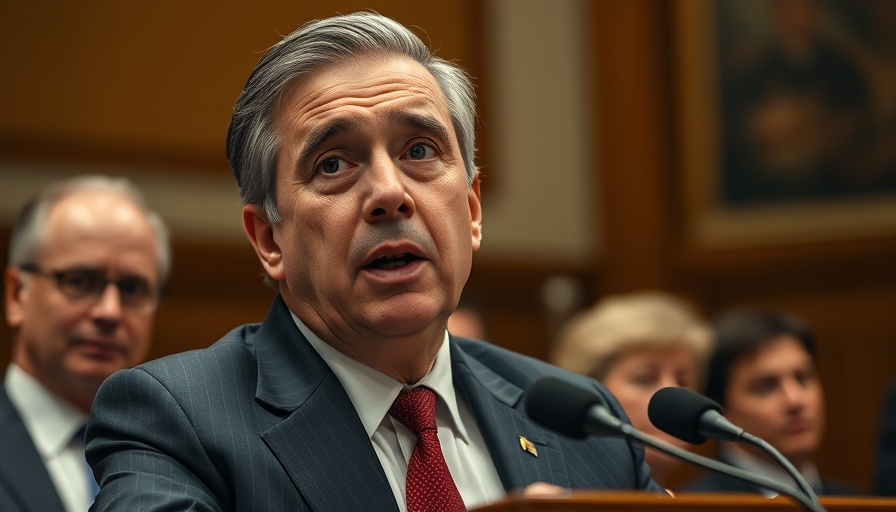
The Urgency of Supporting Biomedical Research
In a powerful moment during a recent Senate hearing, Sen. Susan Collins (R-Maine) articulated a compelling case for reversing proposed funding cuts to biomedical research, reminding us of America's historic leadership in scientific innovation and medical breakthroughs. "There is no investment that pays greater dividends to American families than our investment in this research, which can lead to lifesaving and life-enhancing discoveries," she emphasized, highlighting over 600 new cancer treatments made possible by previous investments.
The Risks of Funding Cuts
However, she cautioned that these advances are at risk from funding cuts and administrative changes. Collins pointed to a troubling 15% cap on indirect costs for NIH grants, which she believes could undermine institutions depending on such support. "The cancellation of essential grants and layoffs in the research community add to an uncertain situation for scientific advancement," she warned, noting that such cuts could jeopardize the foundational elements of progress in healthcare.
Support for Biomedical Research Across the Aisles
Sen. Patty Murray (D-Wash.) echoed Collins' sentiments, characterizing Trump-era policies as detrimental to biomedical research. She stated emphatically that significant fund slashes—some totaling over a billion dollars—jeopardize vital research for pressing health issues, including HIV prevention and chronic diseases like Alzheimer's and diabetes. Murray vehemently argues that these cuts would not only stagnate current research but could ultimately set progress back decades.
Counter Perspectives: Overhead Cost Concerns
While the majority of committee members expressed support for continued NIH funding, not all views aligned. Sen. John Kennedy (R-La.) questioned whether the current funding allocation practices manage overhead costs effectively. His concerns point to a necessary debate on optimizing funding for biomedical research while ensuring rigorous standards for what constitutes necessary expenditures in research settings.
Administrative Challenges and Their Implications
The imposition of rigid cost caps on NIH grants presents a significant challenge, particularly when research costs are adaptable and may vary widely depending on institutional needs. This one-size-fits-all mentality can stifle innovative projects with unique requirements. It's crucial for researchers and policymakers alike to advocate for a nuanced understanding of funding that reflects the complex realities of biomedical research.
Community Impact and Future Directions
The debate over NIH funding is not just a bureaucratic issue; it has profound implications for communities across the country. From the small lab discovering the next big treatment to universities training the next generation of healthcare leaders, every dollar is critical. With the potential for over $21 billion in cuts looming, the stakes couldn't be higher for individuals dependent on these advancements—communities that span every demographic and geographic region.
Moving Forward: Actionable Insights for Providers
Health professionals, researchers, and policy makers must unite in advocacy for robust funding strategies that prioritize patient-centered care and medical research. Collectively, we can promote a healthcare ecosystem that not only acknowledges these urgent needs but actively funds them. Engaging in concerted advocacy efforts can help ensure sustainable investments in biomedical research continue to provide dividends for future generations.
In light of these discussions, it's essential for healthcare professionals to stay informed about ongoing policy changes and initiatives impacting research funding. By subscribing to MedPage Today's healthcare news., practitioners can access the latest insights and advocate effectively for their communities.
 Add Row
Add Row  Add
Add 




 Add Row
Add Row  Add
Add 

Write A Comment